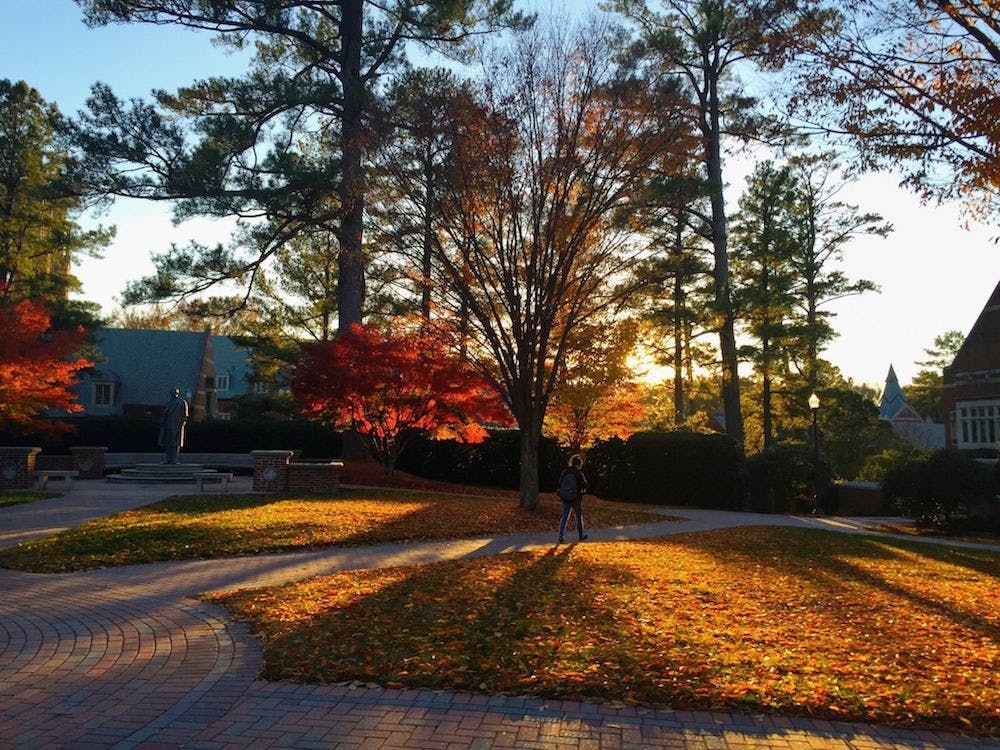University of Richmond will introduce gender-flexible housing for upperclassmen for the 2017-18 school year.
On Dec. 1, 2016, Richmond will join hundreds of other colleges and universities when administrators make their formal announcement to allow students of any gender identity to live together in apartments and dorm rooms.
In an exclusive statement to The Collegian, The Gender Flexible Housing Working Group — composed of Joe Boehman, dean of Richmond College; Mia Reinoso Genoni, dean of Westhampton College; Andrew Gurka, director of Living-Learning programs; and Glyn Hughes, director of Common Ground — summarized this initiative:
“Since May the Gender Flexible Housing Working Group has been developing a pilot program for the 2017-18 academic year. The gender flexible housing option will be available to interested sophomores, juniors, and seniors through the housing selection process. We have created this pilot program so that students who wish to live in a suite or apartment in which three or four upper-class students live together regardless of sex, gender identity, or gender expression may apply for gender flexible housing. Our goal is to provide students with a variety of options, including single-gender housing, co-ed housing, and gender flexible housing. As with all housing options, GF housing cannot be guaranteed, but we have designed the program to allow for a multiplicity of potential demands in our pilot year and for options to be available in a range of residence halls and apartments. We also encourage students who might have a need for GF housing — especially those who identify beyond the binary, including but not limited to genderqueer, gender questioning, or trans students — to contact the Dean of Richmond or Westhampton College or the Director of Common Ground to discuss their needs and available options. The Working Group is still working out the final details of GF housing, and will provide more information in advance of housing selection. We welcome questions at any time.”
Richmond is not the first institute of higher education in Virginia to make this change. It began with George Mason University, located in Fairfax, Virginia, in fall of 2014 when the school decided to offer “flexible housing.”
Other Virginia schools quickly followed suit. The College of William and Mary, which also refers to their gender-neutral housing as “flexible housing,” states that any upper-class or graduate student over 18 years of age may apply to share an apartment with any other student “regardless of sex, gender, or gender expression.” Another public university, Virginia Tech, opened two residence halls on campus in fall of 2015 where upper-class students could request a roommate on the basis of similar guidelines.
At a meeting in early October, Genoni announced to members of the Richmond College Student Government Association (RCSGA) and Westhampton College Government Association (WCGA) that, in addition to the new housing options available to upperclassmen, freshman housing on campus will also be affected.
Freshmen will be housed coed by floor, and possibly by room, Genoni said. Single-sex buildings will remain for those who want that option. Freshmen needing special accommodations will be handled on a case-by-case basis.
Carolyn Bigler, director of campus housing, declined to comment.
The move to create this gender-flexible housing will begin Richmond’s initiative to restructure gendered spaces on campus in order to reflect a more inclusive community, but one outcome might also be working to decrease campus rape culture.
"Separating men and women only perpetuates the problem by limiting the places women and men can interact," said Kylie Britt, a sophomore LGBTQ support services assistant at Common Ground.
Because campus housing is currently segregated by male and female genders, the “only place men and women interact in a social sphere is in a male-dominated atmosphere, such as the lodges,” Britt said. It is in these settings where the “power shifts to be in favor of the men and toxic masculinity is heightened.”
Enjoy what you're reading?
Signup for our newsletter
Glyn Hughes, director of Common Ground, agreed that “if you can proliferate more mixed-gender social time, it reduces the importance of those lodge parties.” But Hughes also stressed that sexual assault is “so large and complicated” that the switch to gender flexible housing alone “won’t just let us off the hook for all the other stuff that we should be doing.”
About three years ago, Hughes and a colleague completed a comprehensive review summarizing all of Richmond’s campus policies regarding the transgender community.
“We found that Richmond was already practicing a lot of these ideal policies, we just had to formalize them,” Hughes said. “Housing was the one area that we knew needed a lot of work in order to get it to reflect our ideal picture.”
This picture will be realized with the switch to gender flexible housing, and Hughes stressed that Richmond would now be able to meet the needs of transgender students and students who don’t fit into the gender binary.
"[Richmond is] coming around to realize that there are actually many students who identify outside of the binary— 'man or woman’ — and that the coordinate college and other systems force students to choose one or the other, and it feels very limiting," Britt said.
And for those who have concerns that gender flexible housing at Richmond is too progressive, Hughes asks them to consider the experiences of people for whom the binary system doesn’t work, and makes them feel both socially and physically uncomfortable.
Contact reporter Jocelyn Grzeszczak at jocelyn.grzeszczak@richmond.edu
Support independent student media
You can make a tax-deductible donation by clicking the button below, which takes you to our secure PayPal account. The page is set up to receive contributions in whatever amount you designate. We look forward to using the money we raise to further our mission of providing honest and accurate information to students, faculty, staff, alumni and others in the general public.
Donate Now



